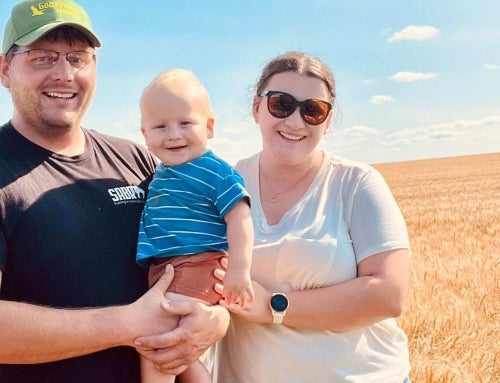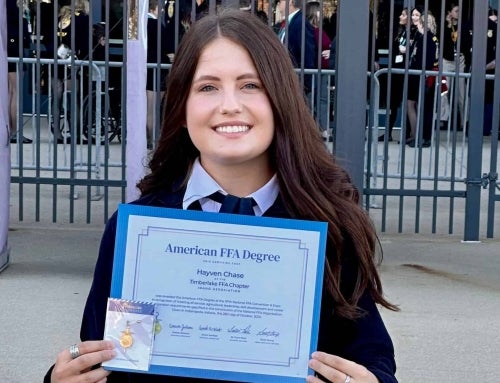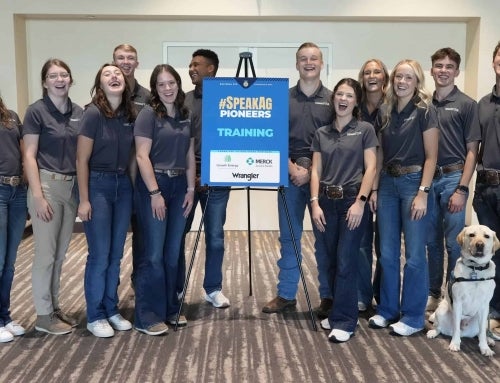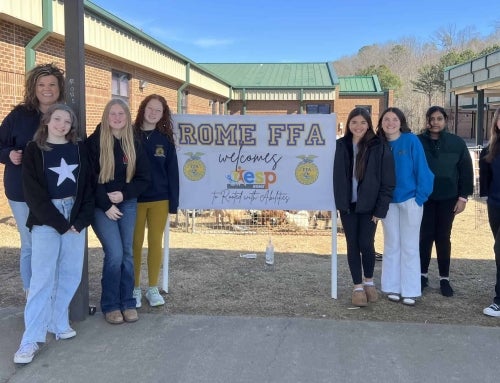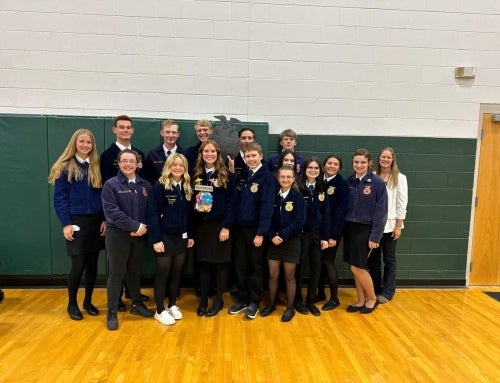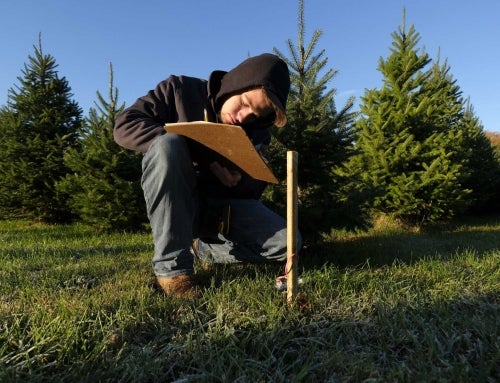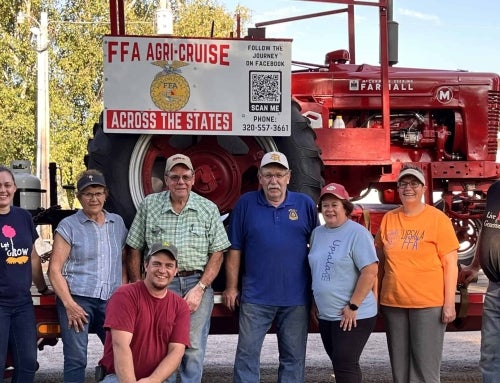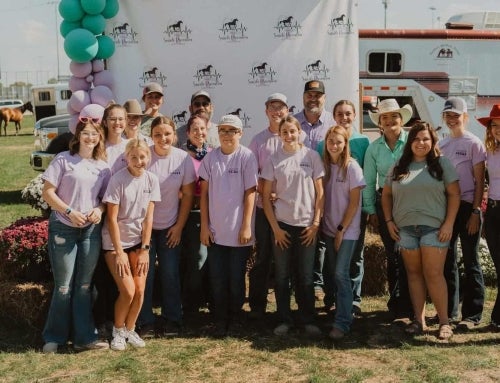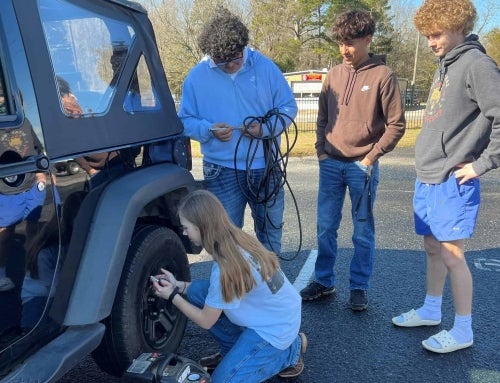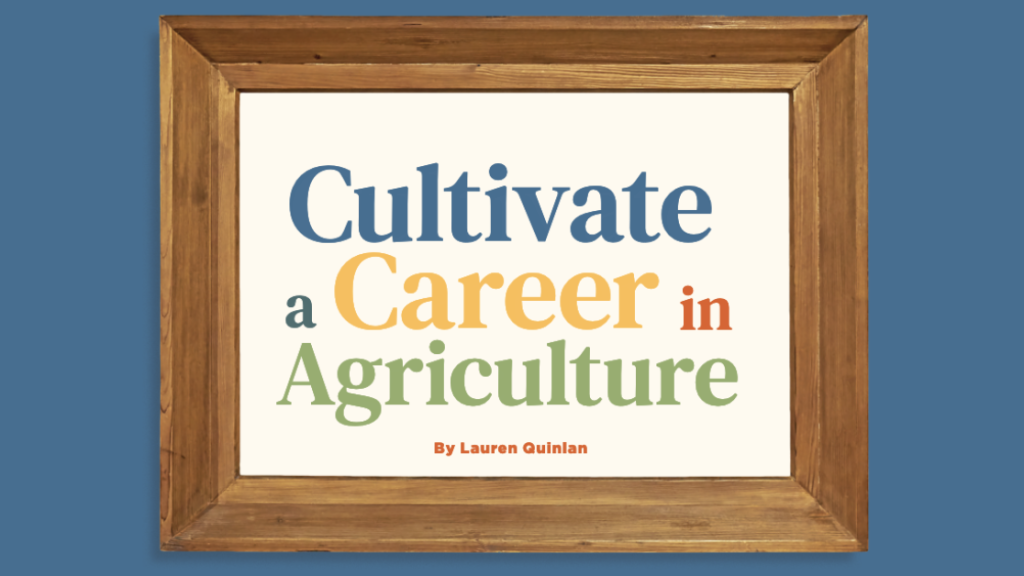
Photography: Getty Images, Issarawat Tattong
At some point in your life, chances are someone has asked, “What do you want to be when you grow up?” With all kinds of possibilities available, it’s OK if answering (or even thinking about) this question is overwhelming. It’s also possible your aspirations have shifted as you’ve broadened your horizons through new experiences.
However, determining your next step doesn’t have to be difficult. Start by identifying where your passions and interests lie. From there, you can narrow your focus and find opportunities, such as an
FFA competition, college major or career path, that align with what you like to do.
There’s also great value to be found in connecting with people who can guide, support and encourage your journey.
As you start or continue your search, meet five FFA alums who have found success in each of the top five career pathways in agriculture, according to data pulled from AgCareers.com and
AgExplorer. Although their backgrounds and experiences differ, they all share a common thread: FFA helped them find their futures in agriculture. Read on to see how this could be the case for you, too.
AGRICULTURAL BUSINESS PATHWAY
Connect business with food and agriculture.
Featured Alum: Cara Crye Wright, President and Chief Executive Officer, Farm Supply
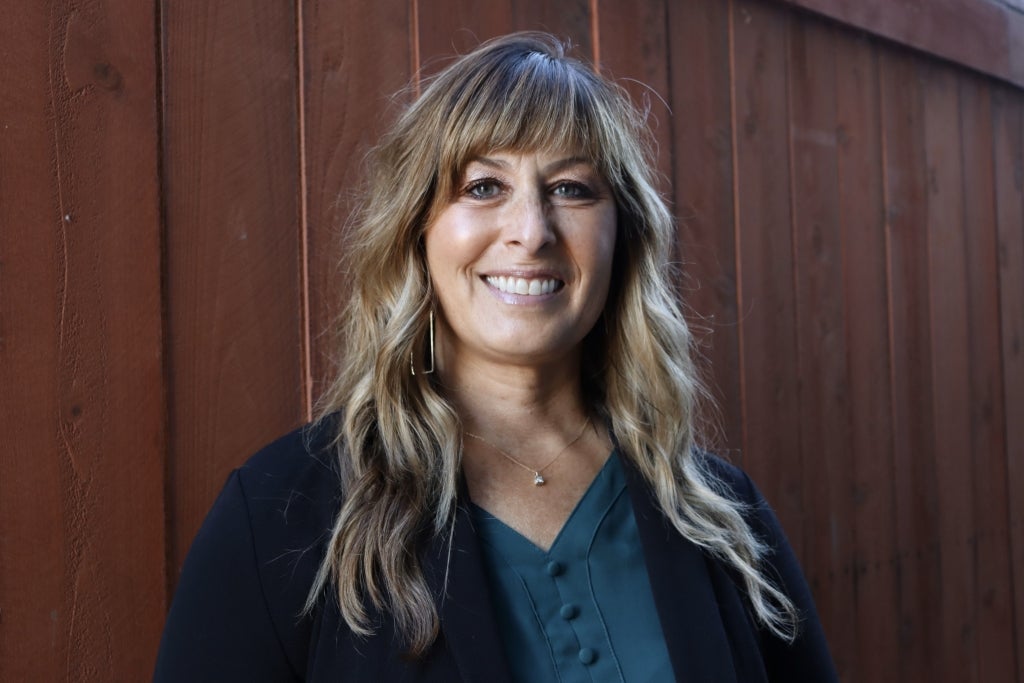
Photo by Kaylee Brooks, Farm Supply.
When Cara Crye Wright began working on the sales team at Farm Supply, a farmer-owned cooperative with five locations on the central coast, as a college student in 1996, she didn’t know this opportunity would one day lead to a full-time career — but it did.
After graduating from California Polytechnic State University with a degree in agricultural science and minors in agricultural business and agricultural communications, the Morro Bay FFA Alumna and 1995-96 California FFA state reporter began working as the cooperative’s marketing coordinator. She was later promoted to vice president of communications and became Farm Supply’s first female president and CEO in 2017.
In this role, Wright applies the skills she gained in FFA — team building, communication and problem solving, to name a few — as she oversees more than 125 employees and manages the cooperative’s facilities, community outreach efforts and daily operations.
“I have the privilege of supporting my team through challenges and wins,” says Wright, who also received an American FFA Degree. “The confidence I gained in FFA is invaluable, and it’s contributed to my ability to speak clearly and professionally in a meeting or an event in front of hundreds of people.”
For those interested in an agricultural business career, Wright’s advice is simple: The industry needs you.
“There are so many opportunities in this field, and we need smart leaders now more than ever,” she says. “As our society continues to become more removed from understanding where its food comes from, the challenges our industry faces on a daily basis increase and there becomes a greater need to feed, educate and advocate around the world.”
Apply Yourself
- Educational Opportunities: Accounting technology, agricultural and applied economics, agricultural communications, business administration or farm and ranch management
- Career Considerations: Account manager, agriculture lawyer, digital marketing specialist, logistics specialist, or sales agronomist
- Potential SAEs and Proficiencies: Agricultural Sales, Diversified Agricultural Production, Specialty Animal or Crop Production
- Competitive Events to Try: Agronomy CDE, Livestock Evaluation CDE or Marketing Plan CDE
TECHNOLOGY PATHWAY
Use technology to increase efficiency and profitability.
Featured Alum: Sheila (Weninger) Jaeckel, Precision Agriculture Consultant, Ballweg Implement
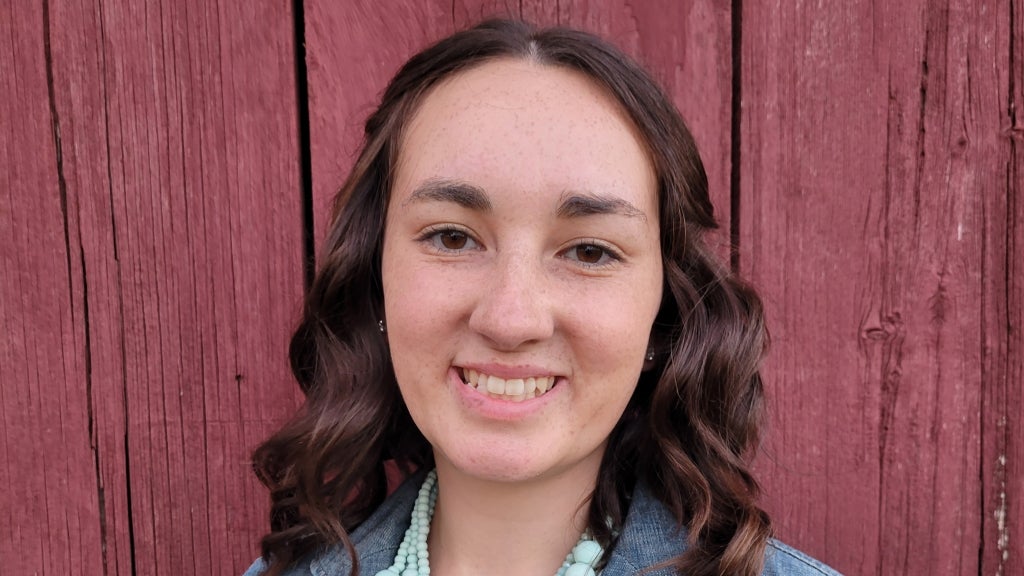
Photo courtesy of Sheila Jaeckel.
Reflecting on her time as a Hartford FFA member in Wisconsin, Sheila (Weninger) Jaeckel says there isn’t one experience that stands out to her the most. Rather, everything she participated in, including competitive events, conferences and the National FFA Talent and Chorus programs, positively influenced the direction of her chosen career path.
“Additionally, being a chapter officer taught me how to work with others and delegate tasks,” Jaeckel says. “I also learned about planning and organizing through helping with various events, and the knowledge I gained through my Supervised Agricultural Experience in goat production helped me understand the importance of budgeting.”
Jaeckel attended Fox Valley Technical College, where she completed an associate’s degree in agribusiness science and technology with a focus on agronomy, and earned a technical diploma as a precision agriculture technician. She then completed a bachelor’s degree in organizational leadership with an emphasis in applied communications from the University of Wisconsin-Green Bay.
“I highly recommend trying out a career path through an internship or job shadowing experience,” Jaeckel says. “For me, this was a great way to gain real-world experience and see what it was like working with different farmers and types of equipment.”
Jaeckel’s favorite part of her current job is that no two days at Ballweg Implement are the same. Sometimes she’s in the office, helping farmers troubleshoot over the phone, while others include traveling to the field or shop to work with them face to face.
“I love seeing people’s reactions when they learn how to use new technology for the first time,” she adds. “Whether it’s a big or small change, it’s rewarding to see how amazed they are by what it can do for their operation.”
Apply Yourself
- Educational Opportunities: Agricultural systems technology, computer science, cyber security, industrial technology or information technology
- Career Considerations: Agricultural engineer, integrated solutions consultant, precision agriculture specialist, software developer, or technology strategist
- Potential SAEs and Proficiencies: Agriscience Research, Agricultural Mechanics or Agricultural Services
- Competitive Events to Try: Food Science and Technology CDE, Agricultural Technology and Mechanical Systems CDE or Meats Evaluation and Technology CDE
SUSTAINABILITY PATHWAY
Balance economic concerns and environmental impact.
Featured Alum: Brock Vetick, Innovation and Sustainability Specialist, Settje Agri-Services and Engineering

Photo courtesy of Brock Vetick.
Although Brock Vetick knew he wanted to pursue a career rooted in agriculture, he never imagined he’d find himself working in the sustainability sector.
“I love the breadth of my job and working with people in rural communities,” Vetick says. “The word ‘sustainability’ can mean something different to everyone, but there’s certainly a place for those who are interested in this field.”
Taking advantage of opportunities he was presented with as a Lyons-Decatur Northeast FFA member in Nebraska, in addition to serving as a 2017-18 Nebraska FFA state vice president, helped Vetick branch outside of his comfort zone and strengthen his skill set.
“I grew the most from public speaking events and preparing proficiency award applications because they challenged me to think critically, learn new things and articulate my thoughts and experiences,” he says.
Following high school, Vetick attended the University of Nebraska-Lincoln, where he studied agricultural economics and agribusiness entrepreneurship. As his network grew, he connected with professionals at Settje Agri-Services and Engineering before accepting a position with the company.
Today, he helps improve all aspects of the design, construction and management of livestock facilities. This includes exploring new technologies and evaluating the environmental, economic and social sustainability practices of farming operations. Alongside his colleagues, Vetick also hosts a podcast called “Sustaining the Herd,” which dives into topics related to innovation and sustainability in animal agriculture.
“If someone would’ve told me five years ago where I’d end up, I probably wouldn’t have believed them,” he says. “But as my FFA advisor, Kevin Anderson, taught me, it’s always worth trying something to see what happens, and you’ll often regret the things you didn’t do more than the things you did.”
Apply Yourself
- Educational Opportunities: Environmental science, food science, international agriculture, natural resources ecology and management or plant and soil sciences
- Career Considerations: Aquaculturist, community/urban farmer, environmental engineer, renewable energy specialist or wildlife biologist
- Potential SAEs and Proficiencies: Environmental Sciences and Natural Resource Management, Landscape Management or Wildlife Production and Management
- Competitive Events to Try: Agricultural Issues Forum LDE, Environmental and Natural Resources CDE or Forestry CDE
BIOTECHNOLOGY PATHWAY
Enhance plants, animals and microorganisms to solve global issues.
Featured Alum: Milton Sabat González-Serrano, Ph.D. Candidate, the Ohio State University
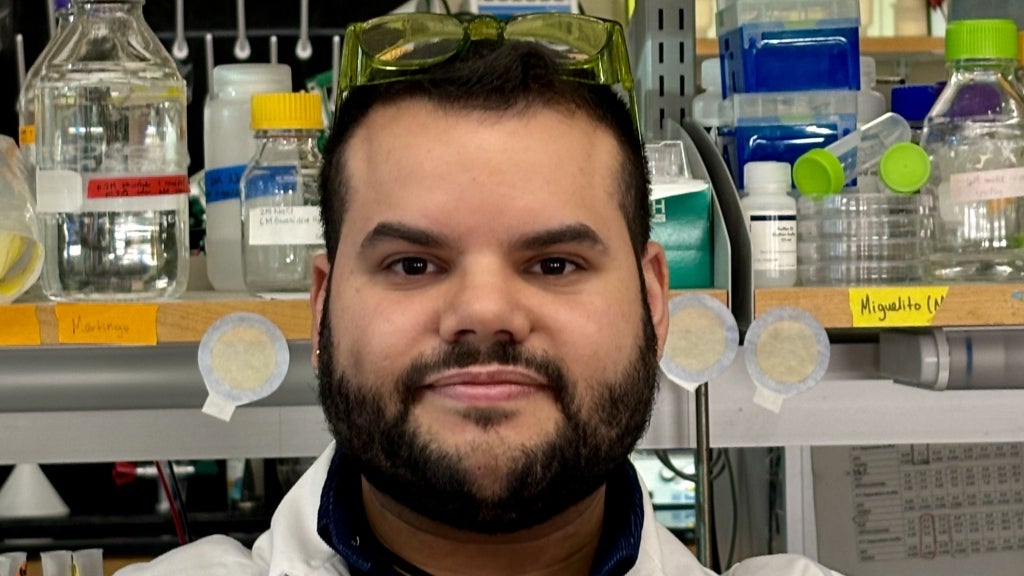
Photo courtesy of Milton Sabat González-Serrano.
Milton Sabat González-Serrano credits his Su Manual Ruiz Gandía FFA advisor, Agro. Migdalia Tosado, for helping him discover a passion for agriscience research and seeing where his interests could take him.
“My FFA experiences taught me the importance of perseverance, teamwork and staying open to new ideas,” he says.
The 2012-13 Puerto Rico FFA state president, 2017 national FFA officer nominating committee member and American FFA Degree recipient is currently pursuing a Ph.D. in biochemistry, along with
additional training focused in molecular biophysics.
Prior to beginning this course of study, he completed a bachelor’s degree in animal science and pre-veterinary medicine at the University of Puerto Rico at Mayagüez.
During his time at the Ohio State University, González-Serrano has mentored more than 15 undergraduate and high school students in the Dr. David Wood – Applied Protein Engineering Laboratory — a full-circle opportunity that he finds incredibly rewarding.
“By listening to their aspirations, supporting their goals and nurturing their development, I helped many [students] secure successful science-focused internships and careers,” he says.
In addition to mentoring, one of the many things González-Serrano enjoys about working in this field is its dynamic nature. After completing his Ph.D. this year, he hopes to leverage his knowledge to contribute to innovative solutions that address real-world challenges.
“From developing drought-resistant crops to improving food nutrition and reducing environmental impacts, biotechnology is transforming agriculture,” he says. “This field combines biology, engineering and environmental science. Remember to stay curious, keep learning and be open to interdisciplinary collaboration.”
Apply Yourself
- Educational Opportunities: Animal sciences, biochemistry, entomology, horticulture or microbiology
- Career Considerations: Animal geneticist, laboratory technician, plant pathologist, quality assurance manager, or systems administrator
- Potential SAEs and Proficiencies: Agriscience Research, Environmental Sciences and Natural Resources Management or Outdoor Recreation
- Competitive Events to Try: Agricultural Issues Forum LDE, Food Science and Technology CDE or Veterinary Science CDE
SKILLED TRADES PATHWAY
Apply specialized knowledge, abilities and hands-on skills.
Matthew Baxter, Weld Shop Leadman, Land Pride, Great Plains Manufacturing
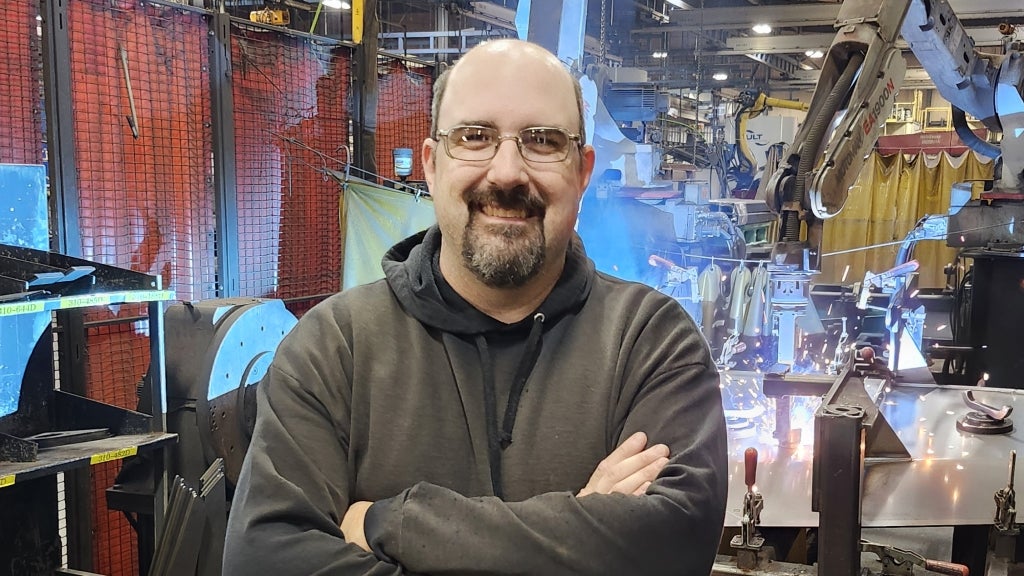
Photo courtesy of Matthew Baxter.
In high school, Matthew Baxter competed in every FFA Career Development Event (CDE) he could get his hands on. Livestock evaluation and land judging were his favorite CDEs, but he also tried dairy cattle evaluation and range judging. However, the Clay Center FFA Alumnus from Kansas wishes he would’ve tried the agricultural technology and mechanical systems CDE because it perfectly relates to his present-day career as a full-time welder.
“I’d also encourage my younger self to run for a chapter office because I’ve seen the value in this experience through serving on local and state FFA alumni boards,” Baxter says. “I’ve found you can’t be afraid to try new things, even if it’s new and daunting, because you’ll be better off in the long run for doing them.”
Baxter, who’s been in his current role for more than 16 years, completed a nine-month welding course at Fort Hays Tech North Central. He says this educational experience exposed him to different types of welding and fabrication work and equipped him with skills such as reading and drawing blueprints — all of which prepared him for what to expect when entering the workforce full time.
During his days on the job, Baxter can be found working on all kinds of equipment, ranging from tillers to mowers, snowblowers and more, and assisting his fellow welders as the need arises.
“If you’re looking for a career where you can use your hands to physically build or create something and make a good living for yourself, this pathway is definitely the way to go,” Baxter says. “You can count on there being a strong demand for your skills anywhere in the world.”
Apply Yourself
- Educational Opportunities: Agribusiness management, Automotive mechanics technology, construction management, electrical trades or welding technology
- Career Considerations: Custom applicator, farrier, heavy equipment operator, livestock auctioneer or maintenance/service technician
- Potential SAEs and Proficiencies: Agricultural Mechanics, Agricultural Services or Landscape Installation
- Competitive Events to Try: Agricultural Technology and Mechanical Systems CDE, Farm and Agribusiness Management or Veterinary Science CDE


